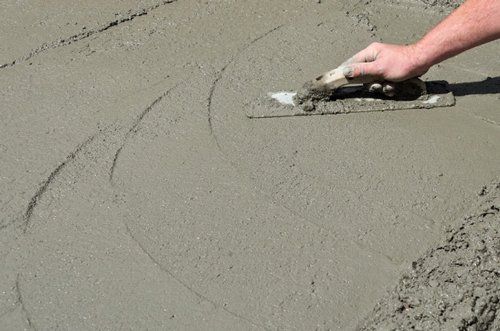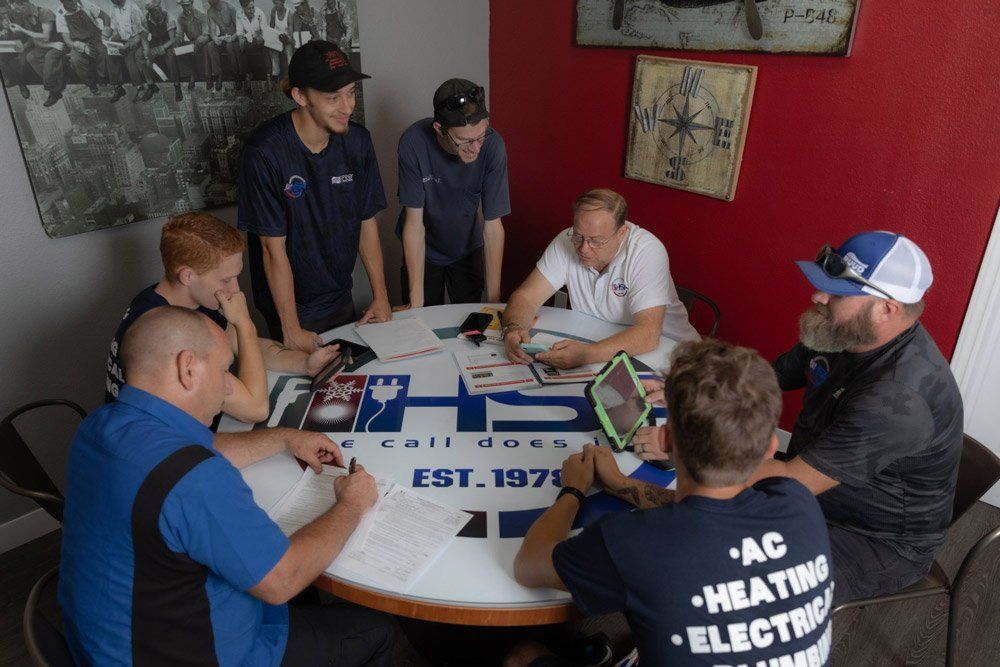An In-Depth Guide to Slab Leaks

Plumbing leaks range from very simple fixes that can be done within minutes to labor-intensive affairs that take time, effort, and money to correctly repair. So when faced with a mysterious leak that seems to be coming from your home's very foundation, you're probably wondering how much time and effort is needed to fix it.
Unfortunately, slab leaks rank as one of the most troublesome plumbing problems a homeowner can encounter throughout their ownership. An ongoing slab leak can cause major damage to your home if left unchecked. Read on to learn what causes slab leaks and how to spot them before they wreck your home. You'll also learn how your plumbing contractor will handle the repairs.
What Are Slab Leaks?
Most modern homes are built on top of a concrete foundation, also known as a slab. What you probably don't know is that much of your home's plumbing is routed underneath the slab. Before pouring the slab, homebuilders lay out the plumbing and sewer runs in the dirt. Once the plumbing is in place, it's effectively covered over by the slab.
Slab leaks happen when the plumbing under the concrete foundation suddenly springs a leak. Left to its own devices, a slab leak can cause structural damage to your home.
What Causes Slab Leaks?
Slab leaks can happen for a number of reasons, but here are the three most common problems that can eventually lead to leaky pipes underneath your foundation:
- Corrosion
. Your home's metal pipework can experience galvanic corrosion due to prolonged contact with the dissimilar metals commonly found in soil. Galvanic corrosion can leave behind holes in your plumbing pipes, resulting in a slab leak.
- Pressure
. Underground pipes can experience extreme pressure, especially when surrounded by soils that expand and contract depending on their moisture content. The pipes may eventually fracture or tear if the foundation shifts far enough.
- Abrasion
. Constant vibrations caused by flowing water can cause pipes to rub against hard surfaces, such as steel rebar, gravel, or even another pipe. The resulting abrasion can cause holes to form in the pipe.
How Can You Identify a Slab Leak?
Unlike that leaky pipe in your basement or underneath your kitchen sink, a slab leak isn't always obvious. The very nature of a slab leak makes it difficult to detect. Slab leaks are commonly mistaken for other plumbing issues, so it pays to be careful when diagnosing a leak.
Most slab leaks are accompanied by the following symptoms:
- Running water
. If you can still hear running water after turning off all of your taps and water-consuming appliances, then chances are you're dealing with a slab leak.
- Warm flooring
. Unless you've recently invested in a radiant floor heating system, an abnormally warm floor could be the result of a leaking hot water line underneath the slab.
- Mysterious puddles
. Slab leaks can cause water to emerge in strange places, including underneath cabinets and near common bathroom or kitchen fixtures.
- Abnormal water use
. An abnormally high water bill or a water meter that's spinning faster than usual — even when your water-consuming appliances are turned off — is a likely sign of a slab leak in progress.
- Mold and mildew growth
. The appearance of mold or mildew underneath your carpeting can also indicate moisture problems caused by slab leaks.
- Cracked foundation
. A cracked foundation can be a surefire sign of a slab leak. Cracks in walls, as well as cracks and buckling in hardwood flooring, can also signal a slab leak.
How Are Slab Leaks Fixed?
Time is always of the essence when it comes to slab leak repairs. The longer you wait to fix a slab leak, the more damage it'll do to your home. Before attempting any repairs, your plumbing contractor will use a variety of methods and tools to identify the source of the leak.
After spotting the precise location of the leak, your plumbing contractor may choose to eliminate the leaking line by rerouting it through an above-ground location. Your contractor can also attempt to repair the leak using a minimally invasive means, such as an epoxy pipe liner.
Your plumbing contractor may recommend a complete repiping of your home if the damage is widespread or if a permanent fix is needed. In most cases, your contractor will replace much of your home's original pipes with those made from more durable materials. Repiping can be a sizable investment and a labor-intensive process that requires careful consideration.
Dealing with a slab leak can be a headache-inducing experience without the right contractor by your side. Henry's Service All will handle your slab leak repair and take steps to prevent future leaks from happening. Contact us if your DFW-area home needs effective slab leak repair.











